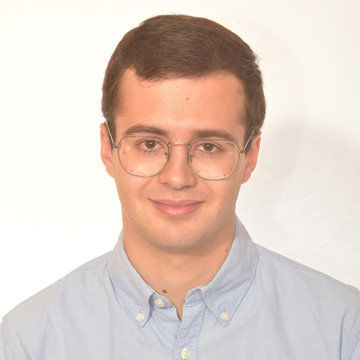Fernando Martínez Periset

Before joining Stanford's department of Comparative Literature as a doctoral student in 2022, I trained as a comparatist at Durham, the Sorbonne, Cambridge and Trinity College Dublin. At Stanford, I hope to be able to work with Roland Greene, Joshua Landy, Blair Hoxby and Patricia Parker as I continue to make progress in the program.
In terms of research interests, the main issue I keep coming back to (which partly derives from my own international experiences) is how to make sense of cultural change in its different manifestations. How and why do intercultural encounters function as driving forces of creativity and originality? With a focus on big-picture thinking, interdisciplinary approaches and global perspectives in the study of cultural history, I see such creative practices at work in the overlaps among literature, art history and philosophy, particularly continental philosophy. More precisely, my research deals with two broad axes: how classical theories of ethics and subjectivity (like Stoicism and Epicureanism) produced changes in societal values within Early Modern culture, and how the Renaissance, in turn, shaped attitudes to selfhood in later movements, especially Romanticism. From the standpoint of transhistorical reception studies, I like to explore the inner lives of people from the past as a way of finding answers for our own present. Specific topics of interest include the intersections of literary forms with the history of emotions, the history of ethics, cognitive anthropology, migrations, intellectual history and religion. I like poetry (both studying it and writing it) and the epic tradition as well as theatre. Beyond French, Latin, Spanish and English, I am currently expanding into Portuguese and Arabic.
Some of my favourite authors include figures from Classical Antiquity and Early Modernity, such as Shakespeare, Milton, Montaigne, Racine, Seneca, Lucretius, Virgil, Homer, Quevedo, but also more recent figures whose work intervenes in and develops preexisting structures of ethics and emotions such as Byron, Coleridge, Joyce, Camus, Sartre, Maryse Condé, Juan Rulfo, García Márquez. I look forward to discovering new, exciting figures.
I am a big fan of music from the 70s and 80s, especially British rock, glam and pop... (Queen have been my favourite group since I was 8!). I love cats.
I would be delighted to hear from students and researchers (from Stanford and beyond!) with whom I could share intellectual interests, so please feel free to drop me a line.